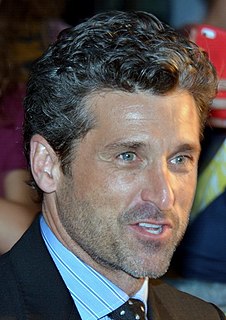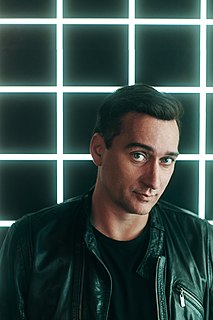A Quote by Julian Barnes
When you're young - when I was young - you want your emotions to be like the ones you read about in books. You want them to overturn your life, create and define a new reality. Later, I think, you want them to do something milder, something more practical: you want them to support your life as it is and has become. You want them to tell you that things are OK. And is there anything wrong with that?
Related Quotes
You don't want to block your thoughts, emotions, and so on; nor do you want to chase after them. If you chase after them, if you let them lead you, they begin to define you, and you lose your ability to respond openly and spontaneously in the present moment. On the other hand, if you attempt to block your thoughts, your mind can become quite tight and small.
Making fiction for children, making books for children, isn't something you do for money. It's something you do because what children read and learn and see and take in changes them and forms them, and they make the future. They make the world we're going to wind up in, the world that will be here when we're gone. Which sounds preachy (and is more than you need for a quotebyte) but it's true. I want to tell kids important things, and I want them to love stories and love reading and love finding things out. I want them to be brave and wise. So I write for them.
I want young Indian composers to be able to do more than just film music. I want to give them the skills that will enable them to create their own palette of sounds instead of having to write formulaic music. It doesn't matter if they become sound engineers, producers, composers or performers - I want them to be as imaginative as they like.
I've obviously used fans - I wouldn't say all my life, because we couldn't afford them when I was young, but from my 20s and onwards we've had to use fans. And I've always loathed them. Everything about them. The way you adjust them, getting them at the angle you want. Carrying them. Cleaning them. The danger of putting your finger in them.
Opportunities may come along for you to convert something -something that exists into something that didn't yet. That might be the beginning of it. Sometimes you just want to do things your way, want to see for yourself what lies behind the misty curtain. It's not like you see songs approaching and invite them in. It's not that easy. You want to write songs that are bigger than life. You want to say something about strange things that have happened to you, strange things you have seen. You have to know and understand something and then go past the vernacular.
Later in life, when my kids struggle to understand a tricky concept or master a new skill, I want them to have the strength and experience to tell themselves, 'I don't know how to do this... yet!' I want them to be confident that, even if something seems challenging today, they have what it takes to figure it out.
It's my life dream to be able to go and continue going to schools and teaching them about stretching and aerobics, cardio and strength training, because I want them to have a better life than I did. I don't want them to grow up to be me. I want them to be healthy. I want them not to go through eating disorders [like me].
If you want to liberate someone, love them.Not be in love with them - that's dangerous. If you're in love with your children, you're in their lives all the time. Leave them alone! Let them grow and make some mistakes. Tell them, "You can come home. My arms are here - and my mouth is too." When you really love them, you don't want to possess them. You don't say, "I love you and I want you here with me."
My books are about ordinary people, like you, me, people on the street, people who really have an expectation of reasonable happiness in life, want their life to have a sense of security and predictability, who want to belong to something bigger than them, who want love and affection in their life, who want a good future for the children.
I always tell people, "There's a book on everyone." I get some of that book before I do anything. If I want to deeply understand someone's reputation, I'll talk to their friends, their former bosses, their peers, and I'll learn a lot about them. I want them to be trusted. I want them to be respected. I want them to give a s - -. Then there are the intangibles: physical and emotional stamina, the ability to confront issues. I can ask all I want about those things, but I also have to see a lot of it.
I feel like there are instances and circumstances in your life that always change. You can think someone's your friend, and it could be out of convenience, or there was something in it for them, or whatever. And a year later, something happens and you really need help, or all of a sudden they have to stand up for you, and it could be inconvenient for them or not benefit them. And they don't have your back. And you're like, "Ok, that friendship was circumstantial. You were only my friend when it was easy." What's hard is you can't tell from the beginning.
What do you want in your life? What do you want in your relationships? And if you say, I'd like them to be harmonious; I'd like them to be free; I'd like not to be in a state of blame all the time or shame. If you answer like that, then I would say, look at what's unforgiven. Look at where you know you did wrong and you would like to go to that person and say - I'm sorry. Can we start over? If you want to have a happier life, I would say, practice forgiveness.






































